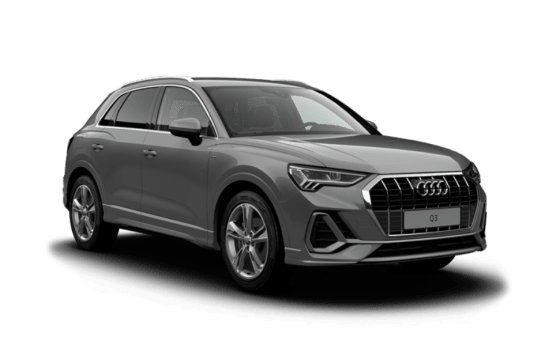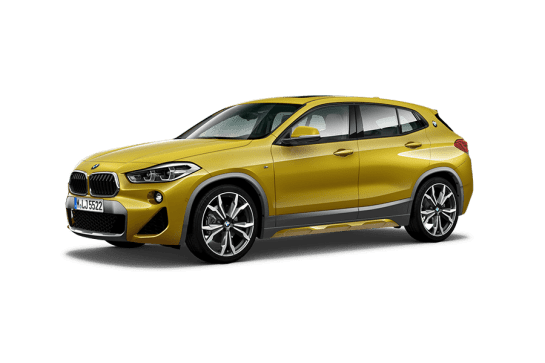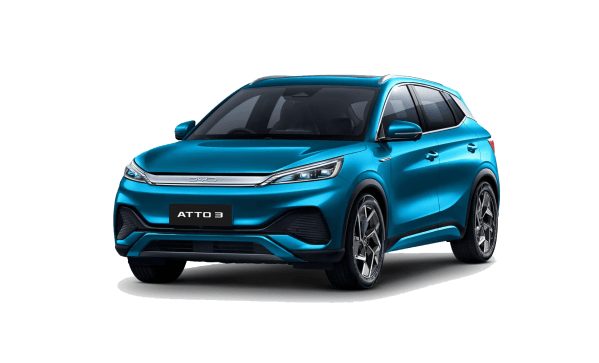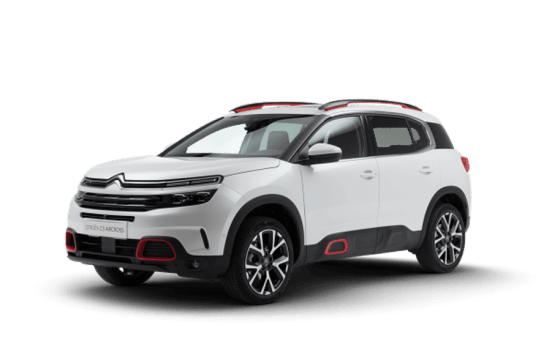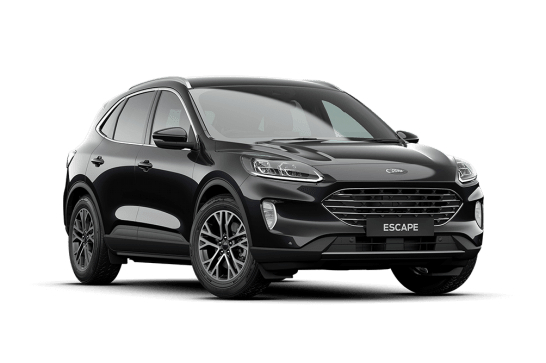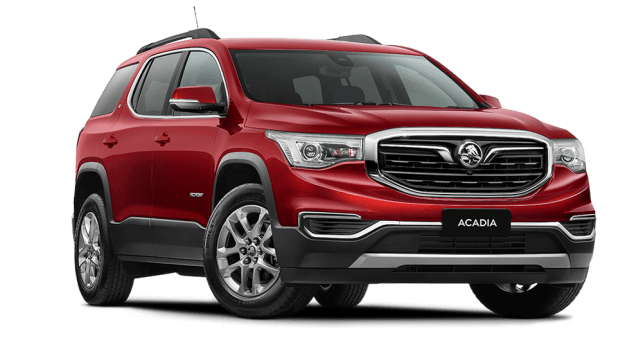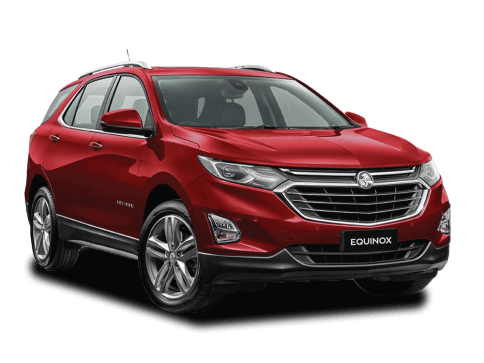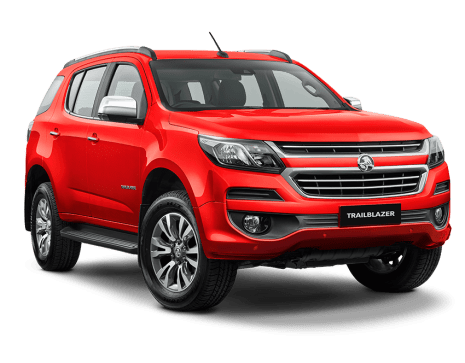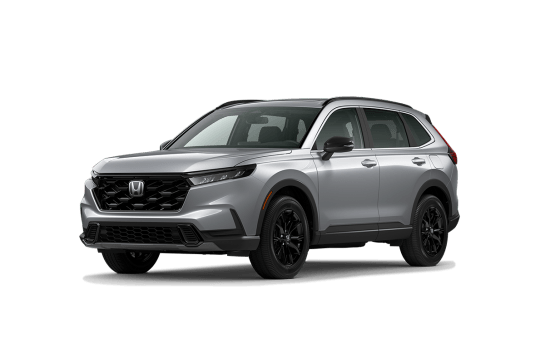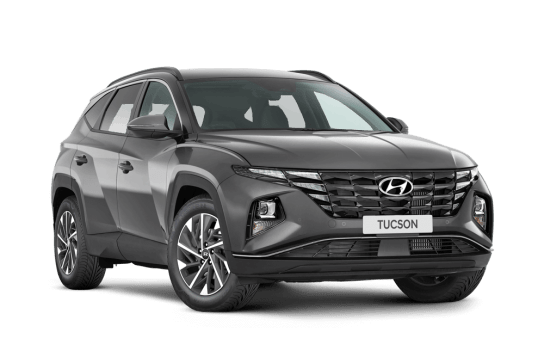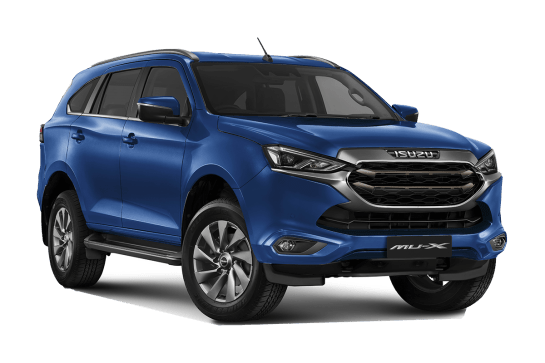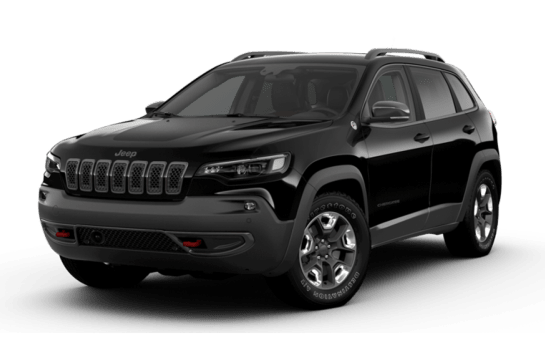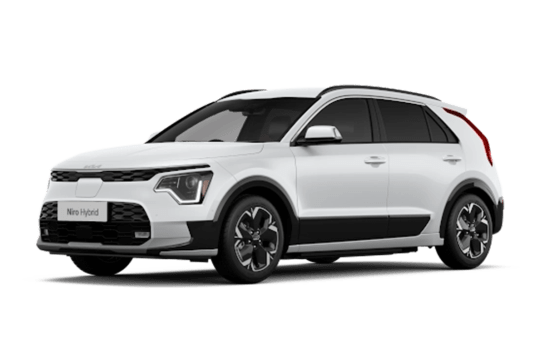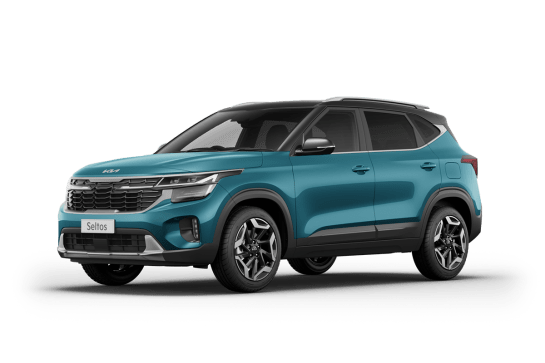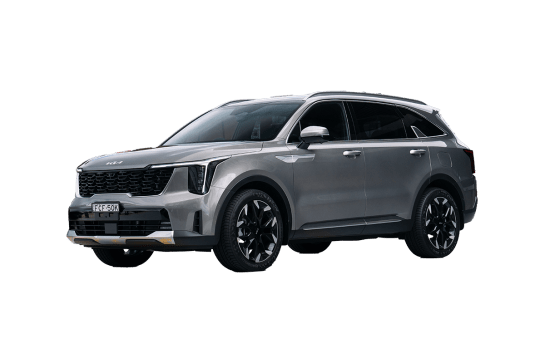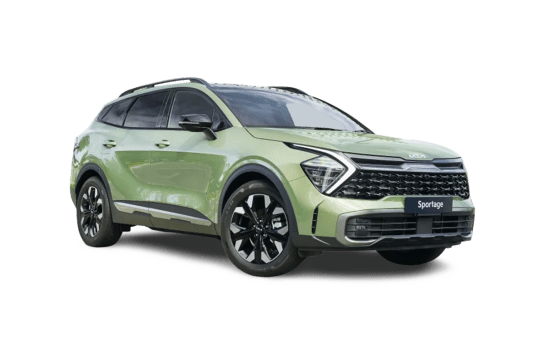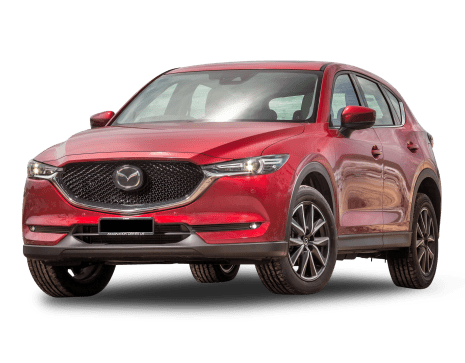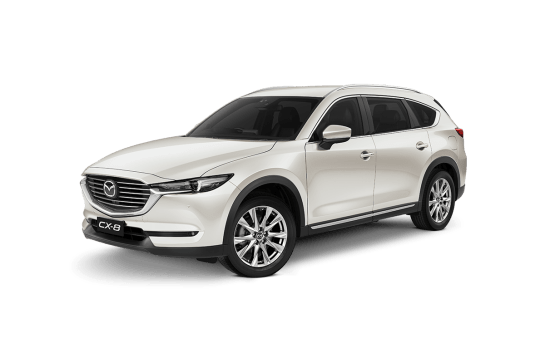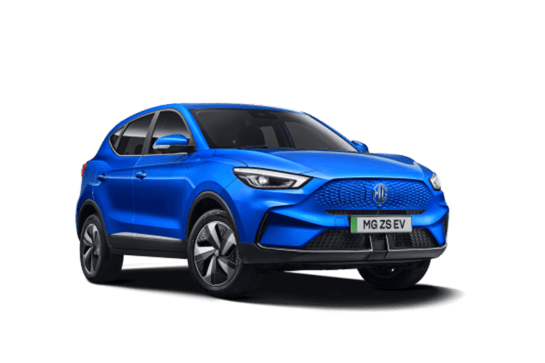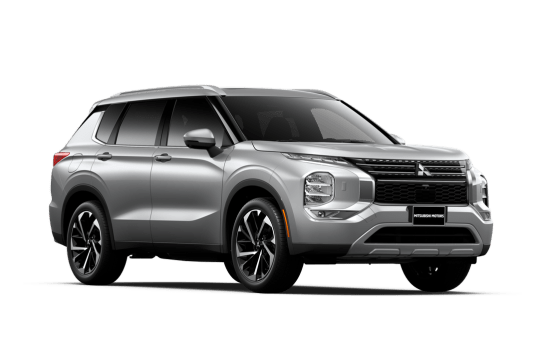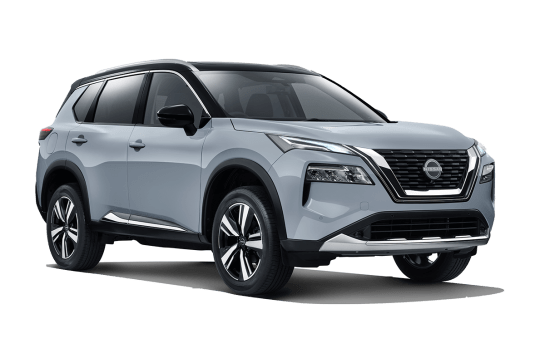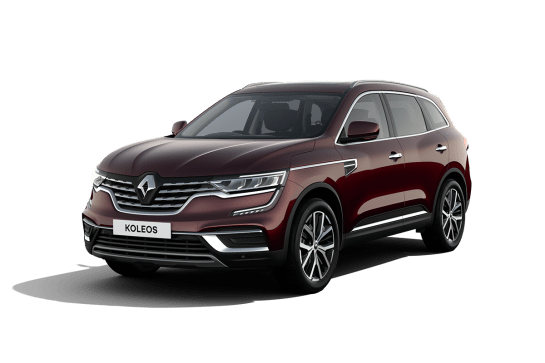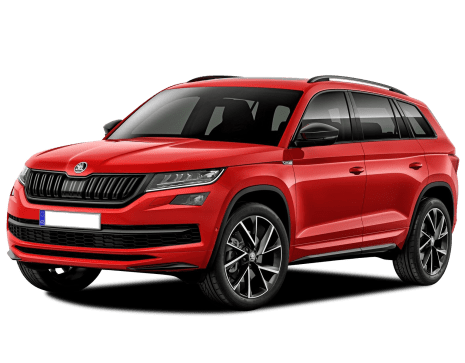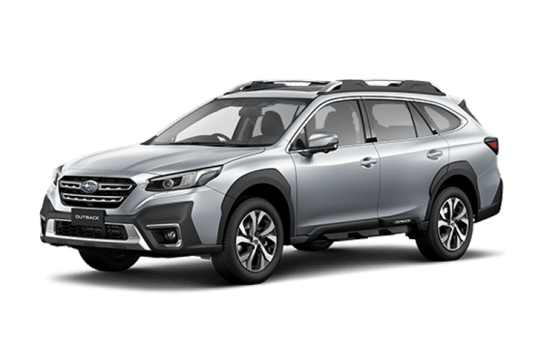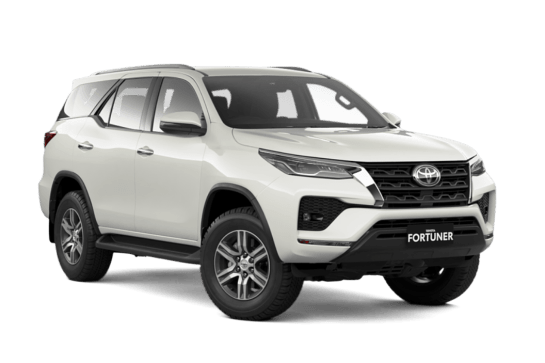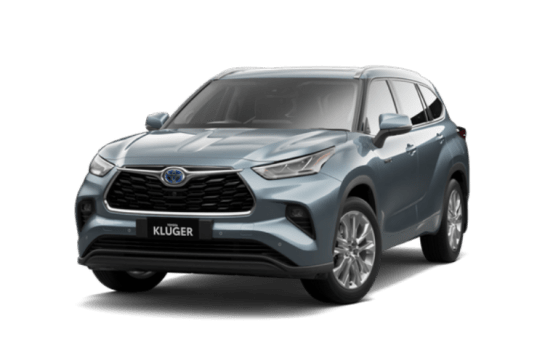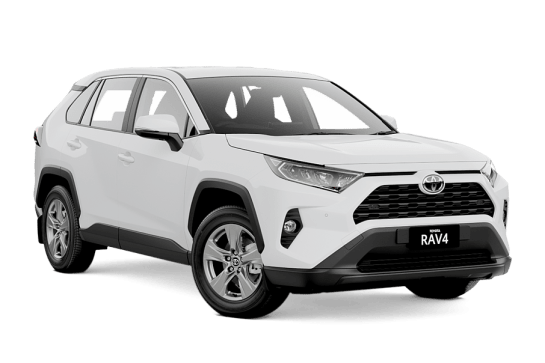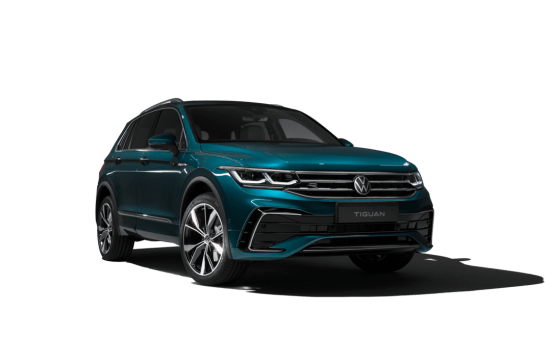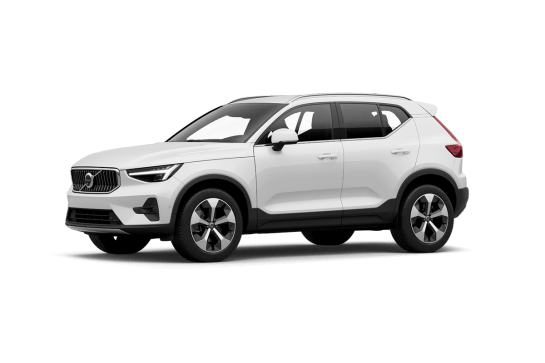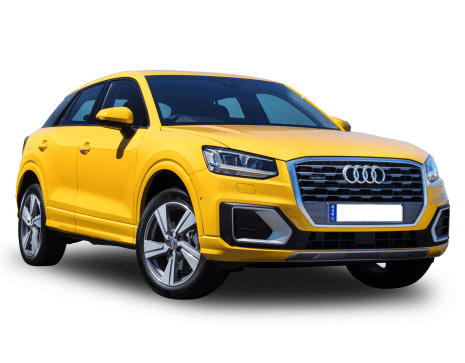
Audi Q2 VS Toyota Kluger
Audi Q2
Likes
- Good value
- SQ2 has great performance
- Angular looks
Dislikes
- Cabin feels old
- Could have more standard safety tech
- Rear legroom limited
Toyota Kluger
Likes
- Hybrid efficiency
- Low ownerships costs
- Great space and storage
Dislikes
- Grande grade is expensive
- Exterior design uninspiring
- Third row airbags don't fully cover occupants
Summary
Audi Q2
Audi’s littlest and most affordable SUV, the Q2, has been updated with new looks and tech, but something else has snuck in with it. Or should I say roared in? It’s the SQ2, with a whopping 300 horsepower and a snarling bark.
So, this review has something for everybody. It’s for those who want to know what’s new for the Q2 in this latest update - those thinking of buying a cool-looking little SUV from Audi - and for those who want to wake their neighbours up and frighten their friends.
Ready? Let’s go.
| Safety rating | |
|---|---|
| Engine Type | 2.0L turbo |
| Fuel Type | Premium Unleaded Petrol |
| Fuel Efficiency | 7L/100km |
| Seating | 5 seats |
Toyota Kluger
So, a big SUV like the Toyota Kluger Grande is on your shopping list, but how well will a hybrid version work for you?
Chances are you're a parent - the Kluger is a family favourite after all. And if you’re a parent take comfort in knowing this review of the Toyota Kluger Grande Hybrid is being written by a fellow parent.
A parent who has been up since 5:00am with a toddler who threw breakfast on the floor, somebody who’s already done the school run with the eight-year old and is on their third cup of coffee. And it’s only 9:00am.
Read more about
What does this have to do with cars? Everything - well, it does for family cars, anyway.
The family car is a vital tool and if it doesn’t work properly, not just mechanically but in a practical and financial way, it’s not going to be much help. A good family car needs to be easy to use as well.
Because you’re also a sleep-deprived parent I’m not going to make you trawl through this entire review to find out if the Toyota Kluger Grande Hybrid is any good.
So, let me tell you now, it’s excellent and outstanding among its rivals like the Hyundai Palisade, Kia Sorento or Nissan Pathfinder. It’s exceptional for its roominess, cabin storage and low ownership costs.
Does being a hybrid matter or change things? Absolutely. It'll save you money on fuel and make driving smoother. So, in my books you'd be bananas not get the hybrid version.
So, there you have it - buy it. Seriously. There’s a reason why it's so popular among families.
You only have to look at the car park at the pool I take my son to for his swimming lessons.
Last weekend I ended up in a Kluger traffic jam in there. See, I took a photo because I thought it was funny. My son did not. What would be the collective noun for a group Klugers?
Anyway, the reason why you should continue reading is because I think you don’t need to get the top-grade Grande as it’s too pricey. Read on to save some money and find out more…
| Safety rating | |
|---|---|
| Engine Type | 2.5L |
| Fuel Type | — |
| Fuel Efficiency | 5.6L/100km |
| Seating | 7 seats |
Verdict
Audi Q27.3/10
The Q2 is good value and great to drive – especially the SQ2. The exterior looks new, but the cabin feels older than the larger Q3, and most other Audi models.
More standard advanced safety tech would make the Q2 even more appealing, as would a five-year, unlimited-kilometre warranty. While we’re at it, a hybrid variant would make enormous sense.
So, a great car, but Audi could offer more to make it an even better proposition for buyers.
Toyota Kluger8.1/10
The Kluger Grande Hybrid is outstanding among its peers for fuel efficiency, practicality and ownership costs. It's just that this grade is overly expensive. Really the GXL is the sweet spot in the range for value but you do miss out on some good features such as the sun blinds and leather seats.
That said, hybrid is the way to go with a large SUV, delivering fuel savings and a more peaceful driving experience.
Comfortable, easy, practical and peaceful, that's all parents really want.
Design
Audi Q27/10
This updated Q2 looks almost identical to the previous one and really the only changes are subtle styling tweaks to the front and back of the car.
The front air vents (they aren’t real air vents on the Q2, but they are on the SQ2) are now larger and pointier and the top of the grille is lower. Around the back, the bumper now has a similar design to the front, with those pointy polygons set wide apart.
It’s an angular little SUV, full of sharp-edged shapes like some kind of acoustical wall in an auditorium.
The SQ2 just looks more aggro, with its metallic-trimmed air vents and beefy quad exhaust.
The new colour is called Apple Green and it’s not really like any colour on the road – well not since 1951, anyway when this hue was hugely popular on everything from cars to telephones. It’s also very close to Disney’s “Go Away” green – look it up and then ask yourself if you should be driving a car that’s kind of invisible to the human eye.
I digress. Other colours in the range include Brilliant Black, Turbo Blue, Glacier White, Floret Silver, Tango Red, Manhattan Grey and Navarra Blue.
Inside, the cabins are the same as before, apart from the larger, sleeker media display, and there are some new trim materials, too. The 35 TFSI has silver inlays with a diamond paint finish, while the 40TFSI has aluminium door sills.
The Q2 has beautiful quilted Nappa leather upholstery, which goes beyond just covering the seats and to the centre console, doors and armrests.
All options offer well laid out and premium feeling cabins, but the disappointing part is that it's an older Audi design, which started out in the third-generation A3, launched in 2013, and still exists on the Q2, even though most Audi models, including the Q3, have the new interior design. This would bug me if I was thinking about buying a Q2.
Have you thought about a Q3? It’s not that much more in price, and it’s a tad bigger, obviously.
The Q2 is tiny, at 4208mm end to end, 1794mm wide and 1537mm tall. The SQ2 is longer at 4216mm long, 1802mm wide and 1524mm tall.
Toyota Kluger
The Toyota Kluger is the New Balance sneaker of cars. Yep, Toyota has nailed Mum-and-Dad fashion with the look of the Kluger, without any hint of irony.
This generation came out in 2021 and you can guarantee Toyota won’t bring out a new-gen version until about 2028, possibly 2030.
And even then that one will also look like a loaf of bread, just with a different face. Like this one, and the last one and the one before that.
That reminds me, we need bread.
The Kluger looks tough, but not elegant. It looks modern, but not avante-garde. It looks functional and tells the world, 'if it wasn’t for the kids I wouldn’t be driving this'.
Get past the Kluger Grande’s uninspiring exterior and you’ll find a surprisingly upmarket cabin that's full of air and light, well appointed with premium seats as well as a modern and stylish dashboard.
The Grande grade adds some nice trimmings I didn't mention in the features section such as the wood-look elements, ambient lighting, and the soft-touch instrument panel.
The exterior also gains chrome elements in the grille, roof rails and larger 20-inch chrome-look wheels.
There are some elements which bring the tone down in the cabin. The JBL speakers in the windscreen pillars look like big plastic novelty ears and the wood-look trim doesn’t look or feel like wood (why didn’t they use real wood?), but it’s not worth getting uppity about.
Practicality
Audi Q27/10
The Q2 is basically a current model Audi A3, but more practical. I’ve lived with the A3 Sedan and Sportback and while rear legroom is just as confined in those as it is in the Q2 (I’m 191cm and need to squish my knees behind my driving position) getting in and out is easier in the SUV, with its elevated ride height and taller door apertures.
The easier access helps enormously when helping kids into their child seats. In an A3 I need to kneel on the footpath to be at the right level to put my son into the car, but not with the Q2.
The boot space of the Q2 is 405 litres (VDA) for the front-wheel-drive 35 TFSI and for the SQ2 it’s 355 litres. That not bad, and the large hatch makes for a big opening, which is more practical than a sedan’s boot.
Inside, the cabin isn’t enormous, but rear headroom is good, thanks to the fairly high roof.
Cabin storage isn’t terrific, although the front door pockets are big and there are two cupholders up front.
Only the SQ2 has USB ports in the back for rear passengers, but all Q2s have two USB ports up front for charging and media – plus all have wireless charging for phones.
Toyota Kluger
The Kluger is vastly more practical than many of its rivals despite them also being large and seven seaters.
That’s because the Kluger’s use of space inside is excellent for storage, luggage and people. There’s thoughtful practicality everywhere.
Take the Kluger’s dashboard, which doesn’t eat into the cabin too much and has built-in shelves running the width from front passenger to driver.
And the centre console box with its roller door opening that reveals a wireless phone charger and below that deck is a huge hidden space.
There are cupholders in all three rows and generously sized door pockets.
Legroom in the second row is excellent and I can sit behind my driving position even though I'm 189cm tall.
I could sit in the third row, but my head touched the roof and my knees were getting friendly with the back of the seat in front. As with most third rows in SUVs they’re best suited for kids.
Along with the wireless phone charger there are seven USB ports (five up front and two in the second row).
Three-zone climate control means the second row can set their temperature (this comes on the GXL grade, too), and the Grande adds sun blinds and privacy glass to the rear windows.
The rear doors also open tall and wide making entry and exit easy.
The tailgate opens high so there's less chance of bumping your head and it’s the gesture type which means you use a kick motion to open if your hands are full.
Boot space is excellent. The cargo capacity with the third row folded flat is 552 litres and with the third row up its 421 litres.
Price and features
Audi Q28/10
The Q2 entry grade is the 35 TFSI and it lists for $42,900, while the 40 TFSI quattro S line is $49,900. The SQ2 is the king of the range and lists at $64,400.
The SQ2 has never been to Australia before, and we’ll get to its standard features in a moment.
Aussies have been able to buy a 35 TFSI or 40 TFSI since the Q2 arrived in 2017, but now both have been updated with new styling and features. The good news is the prices have only gone up by a few hundred bucks, compared to the old Q2.
Standard on the 35 TFSI are LED headlights and taillights, LED DRLs, leather seats and steering wheel, dual-zone climate control, Apple CarPlay and Android Auto, eight-speaker stereo with digital radio, front and rear parking sensors and a rear-view camera.
That was all standard on the previous 35 TFSI, but here’s what’s new: an 8.3-inch media screen (the old one was seven inches); a proximity key with push button start (great news); wireless phone charging (brilliant), heated exterior mirrors (more helpful than you’d think), ambient interior lighting (aww… pretty); and 18-inch alloys (heck yes).
The 40 TFSI quattro S line adds sports front seats, drive-mode selection, a power tailgate, and paddle shifters. The previous one had all that, too, but this new one has the sporty S line exterior body kit (the previous car was just called Sport not S line).
Now, the 45 TFSI quattro S line may appear not to get much more than the 35 TFSI, but the extra money is getting you more grunt and an awesome all-wheel-drive system – the 35 TFSI is front-wheel-drive only. If you love driving and can’t afford the SQ2, then $7K extra for the 45 TFSI is absolutely worth it.
If you have saved all your pennies and the SQ2 is what you’re zeroing in on, then here’s what you get: Metallic/pearl effect paint, 19-inch alloys, matrix LED headlights with dynamic indicators, the S body kit with quad exhaust, sports suspension, Nappa leather upholstery, heated front seats, 10-colour ambient lighting, stainless-steel pedals, auto parking, a fully digital instrument cluster, and a 14-speaker Bang & Olufsen stereo.
Of course, you get an incredible high-output four-cylinder engine, too, but we’ll get to that in a moment.
Toyota Kluger
If you’re reading this you’ve decided to find out more or possibly just want to know why I called out the price of the Kluger Grande Hybrid in the introduction.
Here’s why. The Kluger Grande Hybrid lists for $80,230. That’s before on-road costs like rego, stamp duty, compulsory third party insurance and dealer delivery charges.
That’s a lot of money and it’s because this Grande grade sits at the top of the range.
The entry-level Kluger GX Hybrid lists for $58,290. That’s $22K less than the Grande. You could buy an entire car for $22,000 - a Hyundai Venue, a Kia Stonic or a Suzuki Swift.
So, why does the Grande cost so much? I don’t know. The features don’t seem to justify the higher price.
All Klugers come standard with alloy wheels, LED headlights, proximity unlocking and push-button start, three-zone climate control, rear privacy glass plus wireless Apple CarPlay and Android Auto. And all have seven seats.
The GXL adds built-in sat nav and a big 12.3-inch media display, heated and power-adjustable front seats, and an auto tailgate.
The Grande then adds leather seats (heated and ventilated up front), a wireless phone charger, head-up display, panoramic glass roof, kick-function tailgate, sunshades for the rear windows and an 11-speaker JBL sound system.
Really, the GXL Hybrid is the one to get and it lists for $67,810.
Under the bonnet
Audi Q28/10
There are three grades and each has a different engine.
The 35 TFSI has a new 1.5-litre four-cylinder turbo-petrol engine making 110kW and 250Nm; the 40 TFSI has a 2.0-litre turbo-petrol four making 140kW and 320 Nm; and the SQ2 has a 2.0-litre turbo-petrol as well, but it puts out a very impressive 221kW and 400Nm.
The 35 TFSI is front-wheel drive, while the 45 TFSI quattro S line and SQ2 are both all-wheel drive.
All have a seven-speed dual clutch automatic transmission – nope you can’t get a manual. There are also no diesel engines in the line-up.
I drove all three cars and, from an engine perspective, it’s like turning the ‘Smile Dial’ up from Mona Lisa in the 35 TFSI, to Jim Carrey in the SQ2, with Chrissy Teigen in between.
Toyota Kluger
If you're concerned a hybrid system will have trouble pulling a large SUV around, let me tell you, the Kluger is powerful and has no problems doing the work. This hybrid SUV could well have more grunt than any car you've ever driven.
Okay, so the Kluger Grande we tested was a petrol-electric hybrid variant which combines a 2.5-litre four-cylinder petrol engine with three electric motors powered by a battery.
The engine’s output is 142kW and 242Nm while the motors make a combined 184kW. The front two electric motors make 134Nm and 270Nm of torque while the rear motor produces 121Nm.
The continuously variable transmission keeps the motion smooth and sends the drive to all four wheels, so yes, the hybrid is all-wheel drive.
Efficiency
Audi Q27/10
Audi engines are superbly modern and efficient – even its monster V10 can shut down cylinders to save fuel, and so can the new 1.5-litre four-cylinder engine in the 35 TFSI. Audi says that over a combination of urban and open roads, the 35 TFSI should use 5.2L/100km.
The 40 TFSI is thirstier at 7L/100km, but the SQ2 demands a bit more at 7.7L/100km. Still, not bad.
What’s not good is the lack of a hybrid, PHEV or EV variant of the Q2. I mean the car is small and ideal for the city, and therefore a perfect candidate for an electric version. Not having a hybrid or EV is why the Q2 model range doesn’t score well for its overall fuel economy.
Toyota Kluger
There are plenty of large SUVs with big V6 and V8 petrol engines out there with heaps of power but they use three times the amount of fuel the Kluger Grande Hybrid does.
I know this first hand. I’ve just tested a V6 powered seven seater SUV which used 20L/100km month in, month out.
I drove the Kluger Grande Hybrid on exactly the same roads every day, doing the same things like school drop offs, the supermarket run, swimming lessons and the work commute and it used 6.6L/100km. I measured this at the fuel pump.
So, 20L/100km for another V6 seven-seater SUV or 6.6L/100km for the Kluger Grande Hybrid? Which would you prefer?
Toyota’s official consumption figure for the Kluger Hybrid is 5.6L/100km (based on a combination of open and urban roads) but mine was mainly suburban and city driving when more fuel is used.
The Kluger Hybrid has a 65-litre fuel tank which means a range of approximately 1160km is technically possible.
The Kluger Grande Hybrid doesn't need plugging in to charge. The battery recharges on the go through regenerative braking.
So, unless you’re a driving enthusiast who loves high-performance or classic cars I’m not sure why you wouldn't choose the hybrid option when it comes to a large SUV. Or a small one.
Driving
Audi Q28/10
When it comes to the driving part, Audi can almost do no wrong – everything the company makes, whether it’s low powered or rip-your-face-off fast, has all the ingredients for engaging driving.
The Q2 range is no different. The entry-grade 35 TFSI has the least grunt and, with its front wheels pulling the car along, it’s the only one in the family that’s not blessed with all-wheel drive, but unless you’re doing laps at a track you’re not going to be wanting more power.
I drove the 35 TFSI for more than 100km on the launch, through the country and into the city, and in all situations, from overtaking on highways to merging and slow traffic, the most affordable Q2 performed well. That 1.5-litre engine is responsive enough and the dual-clutch transmission changes swiftly and smoothly.
Superb steering and good visibility (although that rear three-quarter view is slightly obstructed by the back pillar) makes the 35 TFSI easy to drive.
The 45 TFSI is a good mid-point between the 35 TFSI and the SQ2 and comes with a very noticeable bump in oomph, while the extra traction from the all-wheel drive is a reassuring addition.
The SQ2 isn’t the hardcore beast you might think it is – this thing would be super easy to live with daily. Yes, it has firm sports suspension, but it’s not overly hard, and that engine, which nudges almost 300 horsepower, doesn’t feel like a Rottweiler on the end of a leash. If anything, it’s a Blue Heeler that loves to run and run, but is happy to take it easy and get fat.
The SQ2 is my pick of the bunch, and not just because it’s quick, agile, and has an intimidating growl. It’s also comfortable and luxurious, with sumptuous leather seats.
Toyota Kluger
Smooth, easy, comfortable. Let’s be honest, the Kluger is the SUV version of the Toyota Camry and like that sedan it’s not trying to be a performance vehicle.
Besides, as a dad of small children, smooth, easy and comfortable is all I want these days. I’m still hurting all over after giving piggybacks down a hill all after yesterday. I think I’ve punctured a lung or something. So yeah, smooth, easy, comfortable please and dull sounds good to me right now.
The hybrid powertrain with the continuously variable transmission means motion is smooth with no jerky gear changes and at lower speeds the Kluger glides in silence under the power of just the motors.
If you've never driven an EV before a hybrid like this is the perfect place to start. There's no plugging in to charge yet at low speeds it operates just like an electric car, moving silently and smoothly through the world.
It's serene and makes traffic far less taxing with no gear changes or idling engine.
The steering is light and accurate, while the visibility is good making the Kluger easy to pilot and park.
The suspension is set up for a composed ride and this is helped more by the big, comfy seats.
The Kluger Grande Hybrid isn’t fast in a straight line, but it isn’t sluggish either. The combination of the torque from the electric motors and petrol engine make it feel just as quick off the mark as some V6-powered SUVs I’ve driven lately.
Safety
Audi Q27/10
The Q2 was given the maximum five-star ANCAP rating when it was tested in 2016, but by 2021 standards it is light on advanced safety tech.
Yes, AEB with pedestrian and cyclist detection is standard on all Q2s and the SQ2, and so is blind-spot warning, but there’s no rear cross traffic alert or reverse AEB, while lane-keeping assistance is only standard on the SQ2, along with adaptive cruise control.
For a car that will most likely be purchased by younger people, it doesn’t seem right that they’re not being protected as well they would be in more expensive Audi models.
For child seats, there are two ISOFIX points and three top-tether anchor mounts.
A space-saver spare is under the boot floor.
Toyota Kluger
The Kluger was given the maximum five-star ANCAP rating when it was tested in 2021 and all grades through the range come with the same high level of safety tech.
So, like all the other grades the Grande has AEB with pedestrian and cyclist detection, there’s blind-spot warning, rear cross-traffic alert, adaptive cruise control, plus front and rear parking sensors.
The rear view camera’s view is wide and the resolution is excellent - vital for reversing out of driveways.
Child seats can be fitted only in the second row with three top tether anchor points and two ISOFIX mounts.
You should also know that airbags don't fully cover the third row occupants in the Kluger.
Ownership
Audi Q26/10
The pressure for Audi to move to a five-year warranty must be hugely intense, with Mercedes-Benz offering one, along with pretty much every other mainstream brand. But for now, Audi will only cover the Q2 for three years/unlimited kilometres.
As for servicing, Audi offers a five-year plan for the Q2 costing $2280 and covering every 12-month/15000km service over that time. For the SQ2, the cost is only a fraction higher at $2540.
Toyota Kluger
The Kluger Grande Hybrid is covered by Toyota’s five-year, unlimited-kilometre warranty. The hybrid battery is covered by an eight-year/160,000km warranty.
Servicing is needed annually or every 15,000km and is capped at $265 per service for the first five years.


